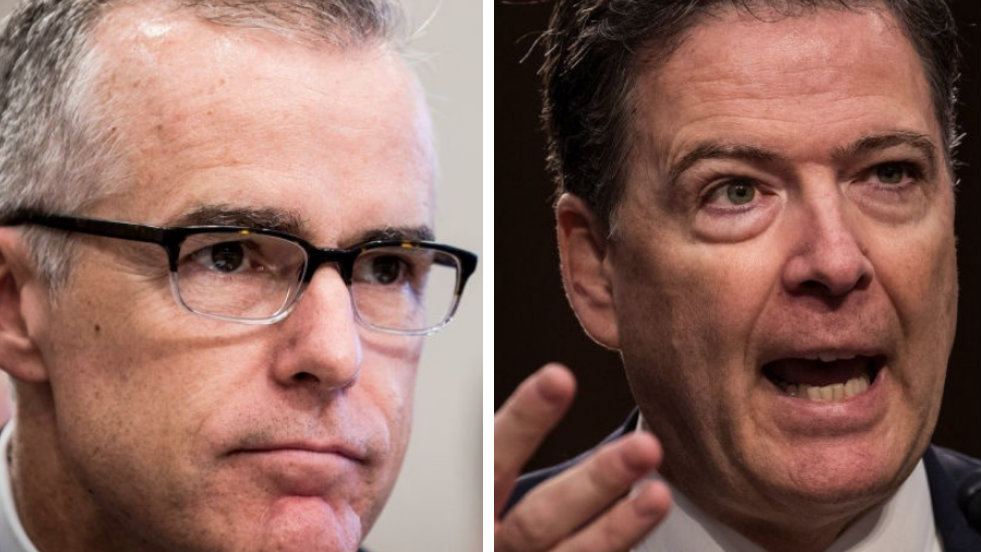By: John Solomon – thehill.com – May 9, 2019
The FBI’s sworn story to a federal court about its asset, Christopher Steele, is fraying faster than a $5 souvenir T-shirt bought at a tourist trap.
Newly unearthed memos show a high-ranking government official who met with Steele in October 2016 determined some of the Donald Trump dirt that Steele was simultaneously digging up for the FBI and for Hillary Clinton’s campaign was inaccurate, and likely leaked to the media.
The concerns were flagged in a typed memo and in handwritten notes taken by Deputy Assistant Secretary of State Kathleen Kavalec on Oct. 11, 2016.
Her observations were recorded exactly 10 days before the FBI used Steele and his infamous dossier to justify securing a Foreign Intelligence Surveillance Act (FISA) warrant to spy on Trump campaign adviser Carter Page and the campaign’s contacts with Russia in search of a now debunked collusion theory.
It is important to note that the FBI swore on Oct. 21, 2016, to the FISA judges that Steele’s “reporting has been corroborated and used in criminal proceedings” and the FBI has determined him to be “reliable” and was “unaware of any derogatory information pertaining” to their informant, who simultaneously worked for Fusion GPS, the firm paid by the Democratic National Committee (DNC) and the Clinton campaign to find Russian dirt on Trump.
That’s a pretty remarkable declaration in Footnote 5 on Page 15 of the FISA application, since Kavalec apparently needed just a single encounter with Steele at State to find one of his key claims about Trump-Russia collusion was blatantly false.
In her typed summary, Kavalec wrote that Steele told her the Russians had constructed a “technical/human operation run out of Moscow targeting the election” that recruited emigres in the United States to “do hacking and recruiting.”
She quoted Steele as saying, “Payments to those recruited are made out of the Russian Consulate in Miami,” according to a copy of her summary memo obtained under open records litigation by the conservative group Citizens United. Kavalec bluntly debunked that assertion in a bracketed comment: “It is important to note that there is no Russian consulate in Miami.”
Kavalec, two days later and well before the FISA warrant was issued, forwarded her typed summary to other government officials. The State Department has redacted the names and agencies of everyone she alerted. It is unlikely that her concerns failed to reach the FBI.
Rep. Mark Meadows (R-N.C.), a member of the House Oversight and Reform Committee and ranking member of its Subcommittee on Government Operations, told me late Thursday he had confirmed with U.S. officials that Kavalec’s memo was forwarded to the FBI in the Oct. 13, 2016, email.
“This once again shows officials at the FBI and (Department of Justice) DOJ were well aware the dossier was a lie — from very early on in the process all the way to when they made the conscious decision to include it in a FISA application,” he said. “The fact that Christopher Steele and his partisan research document were treated in any way seriously by our Intelligence Community leaders amounts to malpractice.”
FBI and DOJ officials did not respond to a request for comment.
But it is almost certain the FBI knew of Steele’s contact with State and his partisan motive. That’s because former Assistant Secretary of State Victoria Nuland says she instructed her staff to send the information they got from Steele to the bureau immediately and to cease contact with the informer because “this is about U.S. politics, and not the work of — not the business of the State Department, and certainly not the business of a career employee who is subject to the Hatch Act.”
Even if the FBI didn’t get Kavalec’s memo, it is just as implausible that the bureau couldn’t figure out, during the many hours that its agents spent with Steele, what Kavalec divined in a few short minutes: He was political, inaccurate, spinning wild theories and talking to the media.
All those concerns would weigh against Steele’s credibility and should have been disclosed to the judges under the honor system that governs the Foreign Intelligence Surveillance Court, experts say.
Kavalec’s handwritten notes clearly flagged in multiple places that Steele might be talking to the media.
“June — reporting started,” she wrote. “NYT and WP have,” she added, in an apparent reference to The New York Times and The Washington Post.
To see the remainder of this article, click read more.
Source: FBI’s Steele story falls apart: False intel and media contacts were flagged before FISA | TheHill
 Listen Online
Listen Online Watch Online
Watch Online Find a Station in Your Area
Find a Station in Your Area









 Listen Now
Listen Now Watch Online
Watch Online
